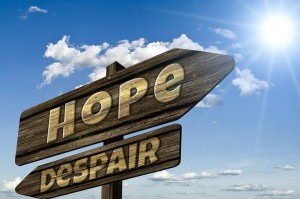 What happens when we, as therapists, become depressed?
What happens when we, as therapists, become depressed?
The recent suicide of Robin Williams has caused an outpouring on Depression. Social Media, television, magazines and the daily press have all had something to say. There are thousands of people in Robin Williams’ position. However, when a celebrity such as Williams takes his own life it really brings home Depression in a way that all the books and documentaries on the subject don’t. I too have not been immune from the feelings of sadness and shock. I have found myself revisiting the subject from many different angles. One of which is what happens when we, as therapists, face depression.
As therapists we have the knowledge, skills and ways of helping clients who present with depression. However, how does it feel if we succumb to an illness that is no respecter of that knowledge? We all know that our training does not give us immunity, just as a doctor is not immune from becoming unwell. However, when it happens to us we face a double whammy. Not only do we have to deal with our depression and all that it takes from us but we have to ask for help. We know we should give ourselves the care and advice we give to others. However, this is a time when we truly test whether what we say and what we are prepared to do are the same. Facing our own psychological/biological vulnerability is not easy.
Clients may find it frightening to think their therapist is not immortal. We all understand the issues of transference and countertransference whether we use that terminology or not. However, now we are also facing our own vulnerability too. Easy to face such issues when there is an objective distance but maybe not so when it is so close to home. Ironically, a therapist may be in an even better position when it comes to their work with clients having experienced a human levelling illness like depression.
There are, of course, the ethical issues that arise such as taking time off from our work if necessary and how to handle this with our clients. Using supervision as a way of ensuring we do the best for our clients as well as ourselves. Perhaps we don’t need to take time out because we have caught the condition early enough and have sought the right help including medication if necessary. However, this also brings up issue of whether we should do so, what impact it may have on our client work. We have to decide whether we should disclose our situation as well as many more ethical and practical aspects, each needing careful consideration.
Disclosure to family and friends as well as our doctor and the therapist we may elect to see all come into play. This is a time when we have to let others in and may feel that somehow our depression takes away from us being a professional.
I am not saying I have the answers or even know all of the questions. However, disclosing even to one’s clinical supervisor that we are in the process of our own life’s journey and have reached the depression junction can be scary. For some it may feel humiliating, while for others there may be a sense of failure. Whatever our reaction we face the prospect of both dealing with our depression while standing back and acting in the best interests of our clients.
If we can face this complex mingling of both the personal and the professional, if we can be humble enough to accept that we are all just fallible human beings, then we can emerge as better therapists as well as people.

Depression can incorporate sentiments of uselessness, powerlessness to focus, uncertainty, touchiness and bigotry of others, absence of inspiration or interest and withdrawal.